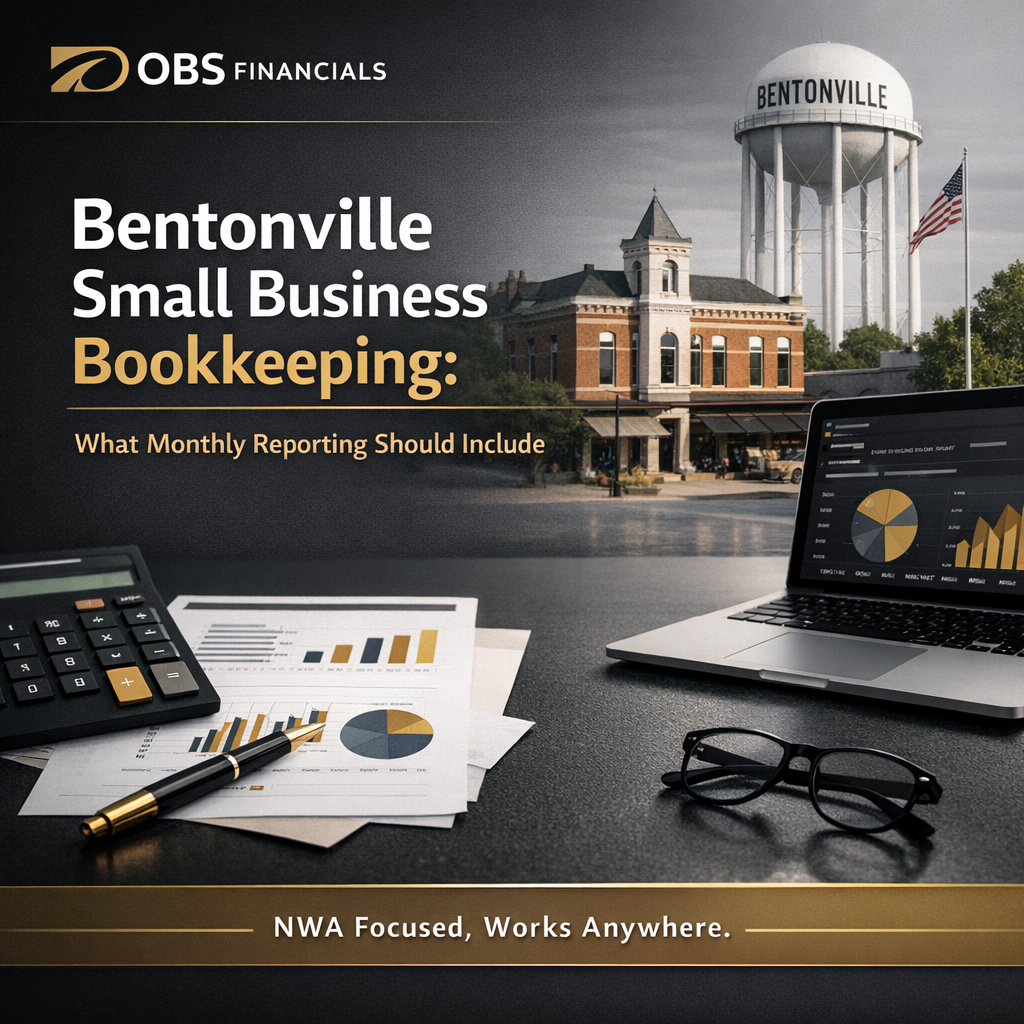For small business owners, effective financial management is essential for fostering growth and ensuring long-term sustainability. This is where professional bookkeeping services become invaluable.
Bookkeeping forms the foundation of your accounting and financial systems, covering a range of daily tasks such as data entry, transaction categorization, managing accounts receivable, and processing payroll. By delegating your bookkeeping to a trusted service, you can guarantee that your financial records are precise, current, and prepared for tax season, allowing you to concentrate on what you excel at – expanding your business.
Professional bookkeeping services extend beyond mere number-crunching; they offer a holistic approach to financial management. Whether you utilize accounting software like QuickBooks or require a comprehensive bookkeeping solution, these services can streamline your financial operations effectively.
From generating monthly financial reports and statements to handling sales tax and tax preparation, a dedicated bookkeeper or accounting team can manage it all. This not only conserves your time but also ensures efficient cash flow management, which is essential for your business’s health.
In this article, we will delve into how professional bookkeeping services can enhance your cash flow management, improve budgeting and forecasting, and optimize your financial liquidity. By the end, you’ll see why outsourcing your bookkeeping is a strategic decision for your small business.
The Critical Role of Accurate Financial Recording
Keeping Financial Records Current
Maintaining up-to-date financial records is vital for the success and stability of your small business. Accurate and timely records offer a transparent view of your business’s financial health, empowering you to make informed decisions swiftly.
This requires tracking all financial transactions, including income, expenses, accounts receivable, and accounts payable, in an organized and prompt manner. Utilizing accounting software like QuickBooks can automate many of these tasks, ensuring your records are always current and easily accessible.
Up-to-date records also enhance compliance with tax regulations and other financial obligations. For example, having precise and well-organized records simplifies the preparation of tax returns and supports the reported items, minimizing the risk of errors or discrepancies that could trigger audits or penalties.
Minimizing Errors and Reconciliation Challenges
Accurate financial recording greatly reduces the chances of errors and reconciliation issues. Regularly matching your financial records with bank statements, invoices, and other financial documents helps promptly identify any discrepancies.
This proactive method ensures that your financial statements are accurate and trustworthy, which is essential for making strategic business decisions. Errors in financial records can lead to misguided decisions, legal complications, and even financial instability, making it important to maintain a robust system of checks and balances.
Professional bookkeeping services are particularly advantageous in this area. A full-service bookkeeper or an expert team can ensure that all transactions are correctly categorized and that any discrepancies are addressed immediately.
This not only saves you time but also provides peace of mind, knowing that your financial records are reliable and error-free. By leveraging the expertise of professional bookkeepers, you can focus on growing your business while ensuring a solid and accurate financial foundation.
Boosting Budgeting and Forecasting Capabilities
Developing Comprehensive Budget Reports
Professional bookkeeping services play a vital role in creating detailed and accurate budget reports, which are essential for your business’s financial health and strategic planning. A comprehensive budget involves setting financial goals, listing all income sources, determining fixed and variable costs, and planning for unexpected expenses.
Outsourcing your bookkeeping ensures these steps are meticulously executed, providing a clear financial roadmap for your business.
A professional bookkeeper can help you develop a robust budget by analyzing past performance data, industry benchmarks, and market conditions to set realistic revenue expectations. This includes categorizing expenses, tracking income, and setting spending limits for each category. Regularly reviewing and adjusting your budget as actual figures and market conditions evolve is also essential, and a professional bookkeeper can facilitate this dynamic approach to ensure your budget remains relevant and effective.
Predicting Future Cash Flows
Forecasting is another critical component of financial management that professional bookkeeping services can significantly improve. Forecasting involves predicting future financial performance based on historical data and market trends. This can include sales forecasting, cash flow forecasting, and analyzing market conditions to make informed predictions about your business’s future financial state.
A professional bookkeeper can help you create accurate cash flow forecasts, which are vital for ensuring you have sufficient funds to cover expenses and invest in growth opportunities. By predicting the inflow and outflow of cash, you can identify potential cash flow issues early and make necessary adjustments to avoid financial setbacks.
This proactive approach also aids in making smarter business decisions, such as planning for investments, managing inventory, and optimizing resource allocation.
Additionally, forecasting techniques like trend analysis, regression analysis, and scenario analysis can be employed to test different financial outcomes based on various business scenarios and external factors. This comprehensive approach ensures that you are well-prepared for future financial challenges and opportunities, allowing your business to navigate market uncertainties with confidence.
Managing and Enhancing Liquidity
Enhancing Liquidity Ratios
Improving your business’s liquidity ratios is a key aspect of effective liquidity management. Liquidity ratios, such as the Current Ratio, Quick Ratio, and Cash Ratio, provide valuable insights into your company’s ability to meet its short-term obligations. The Current Ratio, calculated as current assets divided by current liabilities, indicates whether your current assets are sufficient to cover your short-term debts.
A ratio greater than 1 is generally a sign of strong short-term financial health.
The Quick Ratio, or acid-test ratio, is another important metric that measures your ability to settle short-term obligations without relying on the sale of inventory. It is calculated by dividing (current assets minus inventories) by current liabilities. This ratio helps you understand if you have enough liquid assets to cover immediate debts without liquidating inventory.
The Cash Ratio, the most stringent of the three, assesses your ability to pay off short-term debt using only cash and cash equivalents. This ratio is calculated by dividing (cash plus cash equivalents) by current liabilities. By monitoring and improving these ratios, you can ensure your business maintains a healthy liquidity position.
Strategic Cash Flow Enhancement
To enhance your cash flow and optimize liquidity, several strategic approaches can be implemented. One effective strategy is to accelerate accounts receivable by switching to electronic invoicing and offering incentives for early payments. This can significantly speed up payment collections and improve your cash inflows.
Additionally, exploring additional revenue streams, such as upselling to current customers or introducing new products or services, can help increase your cash flow.
Managing cash outflows is equally important. Timing your payments to suppliers and creditors in conjunction with your cash inflow can help maintain a healthy cash balance. Negotiating extended payment terms with suppliers can also provide more flexibility in managing your cash reserves.
Furthermore, cutting unnecessary expenses and automating tasks to save on labor costs can help in optimizing your cash outflow.
Regularly reviewing your financial statements and conducting financial audits can also help in identifying areas for improvement in your liquidity management. This includes monitoring key metrics such as accounts receivable and payable, and ensuring compliance with local, state, and federal regulations to avoid fines and legal issues that could drain your cash reserves.
Leveraging technology, such as liquidity management software, can also streamline your financial operations, provide real-time insights into your cash position, and enhance the accuracy of your cash flow forecasts. This proactive and technology-driven approach to liquidity management can help your business stay financially resilient and ready to capitalize on growth opportunities.
Conclusion
In summary, professional bookkeeping services are vital for improving cash flow management, enhancing budgeting and forecasting, and optimizing liquidity. Accurate financial recording, detailed budget reports, and strategic cash flow forecasting are all essential components of a well-managed financial system. By outsourcing your bookkeeping to a reliable service, you ensure your financial records are precise, current, and error-free, allowing you to focus on expanding your business.
If you’re seeking a trusted partner to handle your bookkeeping needs, consider OBS Financials. Our expert team offers comprehensive bookkeeping services, including monthly bookkeeping, payroll, and tax preparation. We provide personalized setup and training for your accounting software, strategic budgeting, and financial clean-up services to ensure your business operates smoothly and efficiently.
Visit our bookkeeping services page at OBS Financials to learn more about how we can help you streamline your finances and drive business growth.
FAQ
How do professional bookkeeping services help in managing accounts receivable and payable to improve cash flow?
Professional bookkeeping services assist in managing accounts receivable and payable by accurately tracking all financial transactions, identifying and correcting inconsistencies, and providing a clear picture of cash flows. This involves monitoring income and expenses, ensuring timely payments and receipts, and generating reports to detect issues and trends before they become problems, thereby enhancing cash flow management and preventing unexpected cash shortages.
What role does real-time financial data play in enhancing cash flow management through professional bookkeeping services?
Real-time financial data significantly enhances cash flow management by providing instant visibility into cash positions, enabling dynamic forecasting, and optimizing working capital. It allows for timely identification of cash flow gaps, unnecessary expenditures, and potential risks, facilitating informed and swift decision-making, and automating reconciliation processes to reduce manual errors and improve accuracy.
How can professional bookkeeping services assist in cash flow forecasting and budget planning for businesses?
Professional bookkeeping services can significantly assist in cash flow forecasting and budget planning by providing accurate and real-time financial records, enabling businesses to predict future cash inflows and outflows. Here are the key ways:
- Cash Flow Forecasting: Bookkeepers create detailed cash flow forecasts using historical data and market trends, helping businesses anticipate when funds will be available and manage short-term, medium-term, and long-term financial obligations.
- Expense Management: Bookkeepers help control expenses and identify areas for cost reduction, contributing to better cash flow management.
- Budget Preparation and Analysis: Bookkeepers assist in preparing tailored budgets and analyzing actual financial performance against budgeted figures, ensuring efficient resource allocation and avoiding overspending.
- Real-Time Insights: Bookkeepers provide real-time financial insights, allowing businesses to make informed decisions promptly and adjust their forecasts based on current conditions.
What strategies do professional bookkeepers use to optimize cash flow, and how do these strategies benefit businesses?
Professional bookkeepers use several strategies to optimize cash flow, including:
- Accurate Financial Tracking: Maintaining precise records of all financial transactions to provide a real-time snapshot of the business’s financial status.
- Streamlining Invoicing and Accounts Receivable: Ensuring prompt invoicing and follow-up on late payments to reduce delays in incoming cash.
- Optimizing Accounts Payable: Managing payment terms with vendors to optimize cash outflows.
- Forecasting and Planning: Analyzing historical data to predict future cash flows, helping businesses prepare for periods of cash surplus or shortage.
- Identifying Cost Savings: Scrutinizing financial records to identify unnecessary expenditures and suggest cost-effective alternatives.
These strategies benefit businesses by ensuring timely payments, reducing unnecessary expenses, maintaining healthy cash reserves, and supporting strategic decision-making, ultimately enhancing financial stability and profitability.




